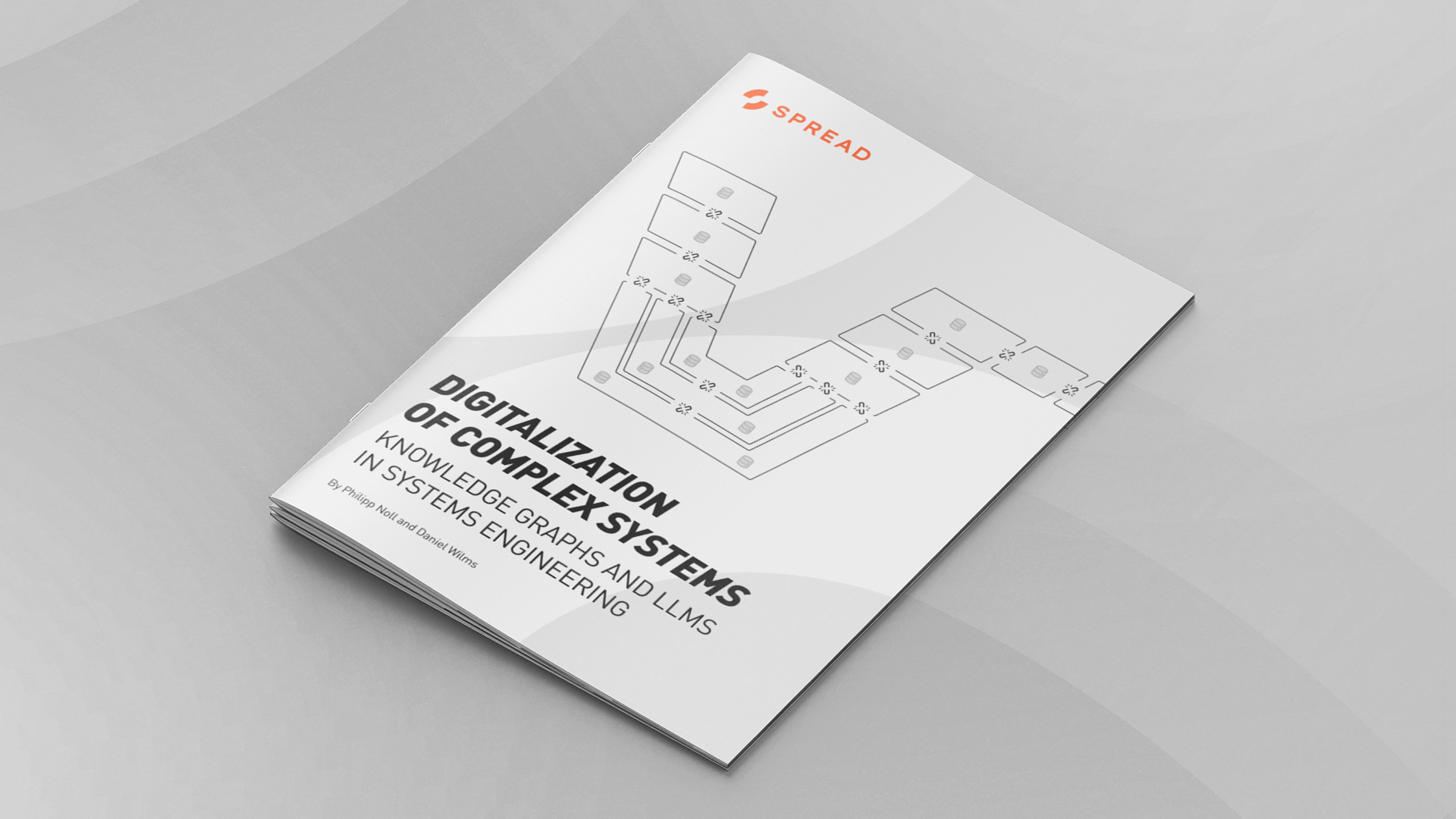Digitalization of Complex Systems: Knowledge Graphs and LLMs in Systems Engineering

Modern vehicles and aircraft are no longer just machines. They are software-defined, data-driven ecosystems, with complexity rising exponentially. In automotive alone, software complexity has grown by 300% in the last decade. Every new function adds more ECUs, more data flows, more interdependencies. The result? Exploding costs, delayed SOPs, and fragile traceability that often breaks under regulatory or design changes.
Traditional requirements management cannot keep up. Specifications remain locked in PDFs and spreadsheets spanning thousands of pages, scattered across departments and suppliers. Engineers spend weeks consolidating data instead of innovating. Late-stage errors cost millions per month in delays and rework.
The paper argues that the combination of Knowledge Graphs and Large Language Models (LLMs) is essential to address this challenge:
-
Knowledge Graphs link structured product data across domains, creating a connected backbone with full traceability from requirements to implementation.
-
LLMs unlock the vast amount of unstructured data, from requirement specs to diagrams, by extracting patterns and transforming them into structured, actionable inputs.
Together, they form the foundation for scalable, data-driven Systems Engineering. This enables real-time traceability, accelerates V-Model execution, and reduces the coordination overhead that slows development of mechatronic systems.
For executives, the takeaway is clear: without a product-data-driven backbone powered by both Knowledge Graphs and LLMs, complexity will continue to erode speed, cost, and quality. With it, organizations can reduce variant chaos, prevent costly rework, and bring software-defined vehicles and aircraft to market faster, at lower cost, and with higher reliability.
Paper authored by Philipp Noll and Daniel Wilms.